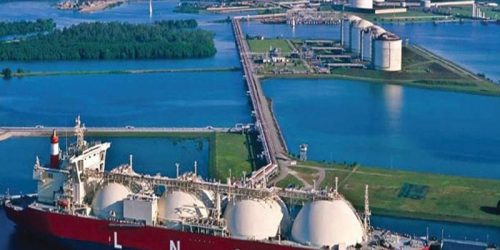U.S. liquefied natural gas (LNG) exports will rise to a fresh record high in 2021 before easing in 2022 for the first time in years, the U.S. Energy Information Administration (EIA) said in its Short-Term Energy Outlook (STEO) on Tuesday.
The agency forecast U.S. LNG exports would rise to 9.38 billion cubic feet per day (bcfd) in 2021 from a record 6.53 bcfd in 2020, before sliding to 9.22 bcfd in 2022.
If correct, 2022 would be the first decline in U.S. LNG exports since 2013 when the only export terminal was in Alaska and the country was still importing more LNG than it sent out.
No other analyst as seen by Reuters has called for U.S. LNG exports to decline in 2022 especially with new export trains expected to start producing LNG later this year at Sabine Pass and Calcasieu Pass in Louisiana.
EIA did not give a reason for the expected LNG export decline.
The agency also projected dry gas production will rise to 92.18 bcfd in 2021 and 93.93 bcfd in 2022 from 91.35 bcfd in 2020. That compared with an record 93.06 bcfd in 2019.
The EIA projected gas consumption would fall to 82.85 bcfd in 2021 and 2022 from 83.25 bcfd in 2020. That compares with a record 85.15 bcfd in 2019.
It projected U.S. coal production will rise to 600 million short tons in 2021 and 605 million short tons in 2022 from 539 million short tons in 2020, its lowest since 1965, as rising gas prices prompt power plants to burn more coal.
The EIA projected carbon emissions from burning fossil fuels will rise to 4.864 billion tonnes in 2021 and 4.955 billion tonnes in 2022 as power generators burn more coal. That is up from 4.571 billion tonnes in 2020, the lowest since 1983.





